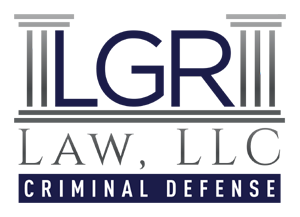Grand Jury Target Letters, Subpoenas, Federal Investigations and Classifications
Many people contact our firm after they have been contacted by a federal agency or the United States Attorney’s Office, and informed that they are a witness, subject or target of a federal investigation. If this happens to you or a loved one, it is important to consult with an attorney who has experience in federal criminal defense, and government investigations, to protect your rights. However, below we try to explain what each of these terms means and its implications.
Witness in a Federal Investigation
If you have been classified as a “witness” by a federal agent or Assistant United States Attorney, that usually means that they think you have information about other people that can help them in an ongoing investigation involving alleged violations of federal law. This generally means that the government does not believe that you have committed a crime, but that they believe that you have information about other’s wrongdoings or the crime itself. You may receive a subpoena to appear at a specific place, date and time to give testimony before a grand jury, and you may be requested to bring certain documents or other evidence with you. While the risk of criminal liability is usually low for people classified as “witnesses,” it is still very important that you discuss your involvement and any potential repercussions of your statements and/or testimony with an experienced federal criminal defense attorney before you speak to the government.
Subject in a Federal Investigation
A subject refers to an individual or entity that is being investigated for possible criminal activity but is not the primary focus of the investigation. It is a person or entity of interest to the prosecution. The status of a subject can change as the government investigation continues and as it obtains additional information regarding the alleged criminal conduct. A common progression here is that a subject turns into a target as the investigation continues. It is also possible that the investigation may end as to a subject without any charges being brought against them
Target in a Federal Investigation
A target is usually someone who the government believes committed a crime and will be charged with criminal conduct. Targets are usually sent letters from the government referred to as “target letters,” asking the individual to come into the Assistant United States Attorney’s office to answer questions. If you receive a target letter or are advised by a federal agent or prosecutor that you are the “target” of an investigation, you need a federal criminal defense attorney immediately. In fact, there will be a sentence or two in the target letter itself, advising you that you should bring an attorney with you to that meeting, or if you cannot afford one, an attorney will be provided to you if you want one. A target may be arrested and charged with a crime, and potentially may face severe penalties, including jail time and fines, if convicted.
It is important to note that in some cases the terms “subject” and “target” can be used interchangeably. In fact, even the government may use the terms differently than as set forth in this writing, and the distinction between the two may not be clear. In any event, in any of the situations here, whether as a witness, subject or target, it is very important to obtain an experienced federal criminal defense attorney who can guide you through the process at the earliest possible stage of being contacted by a federal agent or the government. The lawyers at LGR Law, LLC are experienced federal criminal defense lawyers in New York (Manhattan) and Northern New Jersey. If you or a loved one receive any notice that you or they are a witness, subject or a target of a federal investigation, contact Lorraine Gauli-Rufo, and the attorneys at LGR Law immediately. (973) 239-4300, www.lgrlawgroup.com, [email protected].





0 Comments